QuestionQUESTION: Good morning. I have a 30 gallon aquarium which houses two large (4 - 5 inch) blood parrot cichlids, one Chinese Algae Eater and two small Cory Catfish. The tank and fish have been established for over 15 months. I'm using an AquaClear 70 fiter system and the water specs are all within excellent parameters.
Tank maintenance consists of 15% - 20% water changes while vacuuming gravel, scrubbing inside glass walls and rinsing filter sponge in tank water. All replacement water is treated with Nutrifin Aqua Plus before adding to the tank.
The parrots are a breeding pair, the female having laid eggs 6 or 7 times over the past 15 months after which the male 'attempts' to fertilize them. For days afterwards they fan the eggs (which are either on the smooth driftwood log or a flat rock) non-stop and refuse to eat anything. As the eggs turn white the female eats them... eventually eating all of them... and the cycle continues.
They are (were) very laid back and friendly... actually brushing their sides against my hand when I have to arrange/clean the tank and they both were eager to eat from my fingers.
Two days ago, for no apparent reason, both parrots became spooked at every movement in or near the tank. Even turning on the aquarium light (on for 12 hours per day) causes them to flail around and smash into the walls. If I try to feed them their regular meals (flake, shrimp pellets, small pieces of peeled, diced peas) they nearly kill themselves trying to get away from the food.
This is very upsetting and I'm not sure how to deal with it. There have been no changes to the tank decor, the food, the daily routine or their tank mates in all this time and I can't imagine what is upsetting them so much. It is so out of the ordinary and came about to suddenly.
Any insight or suggestions would be greatly appreciated.
Thank you very much,
Helen
ANSWER: Hi Helen,
Sometimes a gradual buildup of nitrogen products (ammonia, etc) in the tank can cause fish to become "skittish". Try doing a 25% water change today, then again tomorrow, and again for a third day and see if this improves the situation.
-- Ron C.
rcoleman@cichlidresearch.com
Cichlid Research Home Page <http://cichlidresearch.com>
---------- FOLLOW-UP ----------
QUESTION: Thank you so much, Ron. I feel blessed to have an expert in my corner. I did as you suggested and effected a 25% water change out today. It seemed to have an immediate beneficial effect on the parrots... for about 10 minutes... and then they went back into their 'terrified and hiding' behaviour.
I will do another 25% change tomorrow and the next day as per your instructions.
During the water changeout today I decided to vacuum the gravel as part of the deal. What I noticed is that I have some kind of white, hairy stuff growing in the tank. It is very sticky and looks like miniature seaweed growing off the gravel. It sways and breaks off rather easily... actually fowling the intake of the filter because it is so sticky.
I've never seen this before... and all four buckets that I siphoned from the tank was congested with it.
Do you think this could be affecting the parrots? Is there something I can do to eradicate it?
In the end... the only way I can get the parrots to eat is to turn off the aquarium light and dim the ambient lighting in the room... then they seem to venture out and eat some of the food.
As mentioned, I will certainly follow your advice and do another 25% water change tomorrow and the next day... and will get back to you.
Thank you so very, very much... I surely appreciate your time and trouble on my behalf.
Helen
AnswerHi Helen,
I suspect the "seaweed" is sort of "slimy"??? If so, you are likely overfeeding a little and the excess food is being consumed by a slime mold. The key is to do as I suggested, namely a bunch of water changes. This should cure the problem. Let me know.
-- Ron C.
rcoleman@cichlidresearch.com
Cichlid Research Home Page <http://cichlidresearch.com>

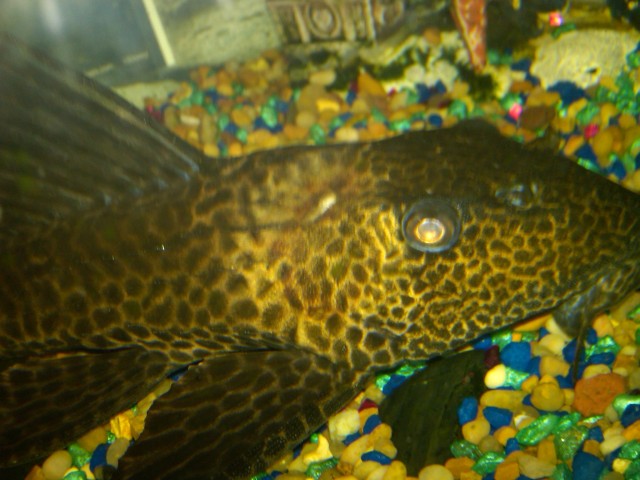 My 4 year old Platys
QuestionQUESTION: It has developed a gash on the back o
My 4 year old Platys
QuestionQUESTION: It has developed a gash on the back o
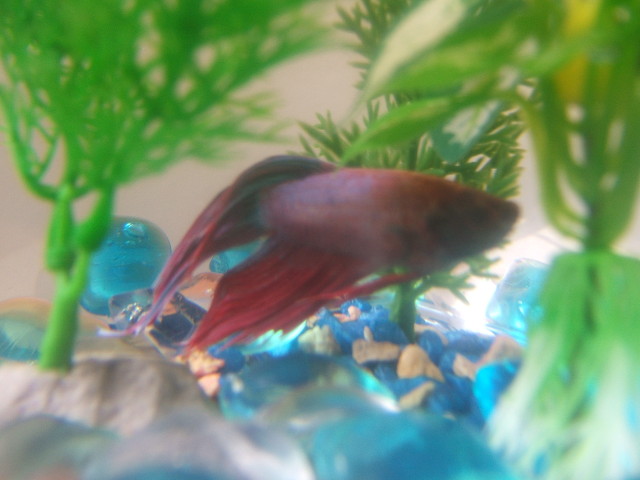 Fish- Bettas Health
QuestionQUESTION: I brought my Betta a few months ago a
Fish- Bettas Health
QuestionQUESTION: I brought my Betta a few months ago a
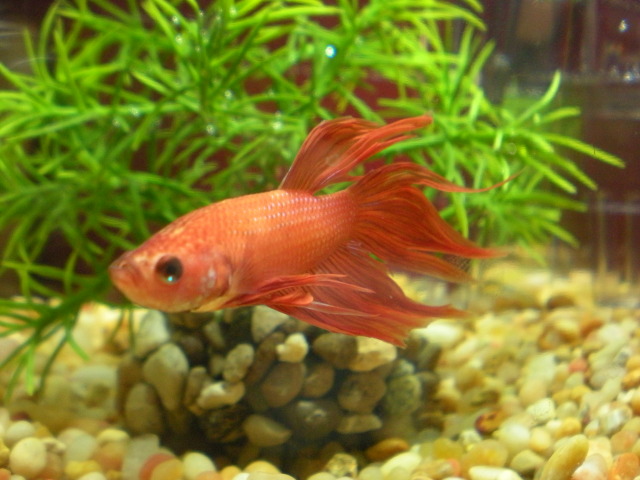 New Betta Antics
Question
Miso
Hello!
I just got my first betta after
New Betta Antics
Question
Miso
Hello!
I just got my first betta after
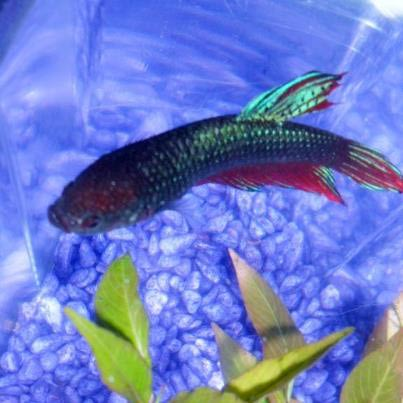 Betta Fish - Care Question
Question
Spike
Hi, First of all I want to thank
Betta Fish - Care Question
Question
Spike
Hi, First of all I want to thank
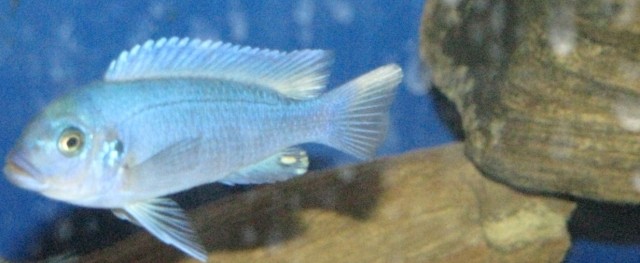 fish spots on tail
Question
IMG0474
i have a 100 gallon tank with cichlid
fish spots on tail
Question
IMG0474
i have a 100 gallon tank with cichlid